Check out Lobo on YOU TUBE:
•••••••••••••••••••••••••••••••••••••••••••••••••••••••••••••••
www.youtube.com/user/travelswithlobo
**********************************************************
Panama: Eight Destinations in Which to Spend the Winter Months
First Time Reader?
Why Panama? – This blog explains the rationale of the trip and this series of blogs.
http://www.travelpod.com/travel-blog-entries/lobo/excursions/1266327384/tpod.html
------------------------------------------------------------------------------------------------------
David – The Interviews
Destination no. 5 of 8 (in no particular order)
Part 3 of 4
Date Blog Written: June 19, 2010
My blogging, starting with Mexico: 23 Destinations To Spend the Winter Months and continuing with Panama: Eight Destinations to Spend the Winter Months, has taken on an expat theme.
How can you have an expat theme without telling the stories of expats?
So wherever I travelled I was interested in talking with expats. For the most part, the expats were retired males who were living by themselves having separated from spouses and seeking to spend the winter months in an area of the world where the "winters" are warm and living is cheap. Discussions with expats were relatively short (15-20 minutes) as I was meeting people “on the fly” so to speak. With very few exceptions expats were receptive to my curiosity about expat life. They all gave me their last names but I have chosen with a few exceptions to keep it on a first name basis.
I realize in retrospect that I should have given more thought to the structure of my discussions to ensure that I was touching upon the same points with all expats. Instead I just sort of let things flow with spotty results. As an example, one area that I should have delved into with each expat was the question of medical care. It is an important aspect that I neglected in most interviews. Another problem is the note taking aspect. Conversations do not slow down to allow for note taking so it is a struggle to keep up and at times a struggle to read what I wrote. I often thought a tape recorder might have been better. Hopefully on my next trip in 2011 to anther expat destination I will do better.
The David (pronounced DaaahVEED) expat that I spent the most time with on the entire trip was “Tom” from Washington State. The reason for that was explained in the previous blog.
As it turned out, I would end up spending much more time in David than I ever anticipated for the simple reason that from David buses go north to Volcan, Bouquete and Boca de Toro and south to Puerto Armuelles and west to Costa Rica. To visit each of these destinations I would have to come back for a fresh start in David. This meant that I spent almost a week in David more than any other destination except Panama City.
While in David I stayed at the Residencial Avenida of which I wrote the following in the previous blog:
On the positive side many expats have passed through this hotel and your likelihood of meeting expats is almost 100% here. To facilitate this process there is a cute little balcony built into the corner of the second floor with cast iron chairs and a table. I spent hours there in conversation with expats one of which – the “Tom” from Washington State, I will feature in my Interviews blog.
Tom - Expat no. 8
Tom from Spokane, Washington has been coming to David for six months a year for the last five years after retiring from a job in the steel industry. He is presently 71 years of age.
He considers the Residencial Avenida the best hotel in town for the price and is accepted here like family. Tom has opted for a $12 dollar room with a ceiling fan, which would seem like an unbeatable price.
Because he has been coming here for a long time, a lot of people know him. The locals greet him with “Hola Thomas” (pronounced ToeMaas). He finds Panamanians friendly, more so than “Ticos” which is the familiar name for Costa Ricans. He has spent time in Costa Rica and his comments about Costa Rica are not the most positive as he finds it very touristy and expensive. Everyone is trying to get a buck out of the tourists. Prices are higher with salaries about the same. Costa Rica has also taken away in 1996 the benefits for retired expats that attracted many to Costa Rica many years ago. He acknowledges that Costa Rica is a beautiful country but finds that Panama is like Costa Rica was 20 years ago.
He likes the bar scene here in David and is a regular at the “Gringo Bar” formally known as the Park Vista Restaurant and Bar located at the Hotel Iris. That's the bar I mentioned in my last blog where expat Peter Hamilton is the owner and Maricela is a waitress.
At some bars that Tom frequents, like across the street from the Residencial Avenida, a beer can cost as little as 50 cents so $5 a night will buy a lot of beers. Five years ago he could buy 5 beers for a dollar and a room at the Hotel Alcala across the street cost $18 instead of $35 as it does now.
I ask him why he does not live in famous Boquete that is located twenty-six miles north of David at a higher altitude with resulting lower temperatures.
He chooses to stay in David due to: his girlfriend, other friends – he says he knows about 50 or 60 people, a low cost of living, the availability of a greater variety of foods, and a greater variety of bars. To him Bouquete is strung out too far over hilly terrain making it not conducive to walking. It is treacherous, as you have to watch carefully where you are walking. (He is not talking about safety but rather the state of the sidewalks and high curbs.)
So Tom gave me several reasons why he liked David
1. women -“they all want to be near you”, “they all want to get married”
2. cheap living
3. the weather
4. there is always something going on and something to do
5. there are lots of parties, the Panamanian people are a jolly bunch
6. Panamanians enjoy the company of Americans – “go to a bar and someone will be sitting beside you in no time”
7. he is accepted here like a member of a family (Tom speaks Spanish)
He says he can live here for about $700 a month for food, a place to live and six to eight beers a day.
Does he miss the United States? Except for the shopping he has no longing to go back to the U.S. He doesn't like the lifestyle back in the States. He has many more friends here so he has a good social life. Eating out is cheap and the weather is better so there is not much question as to where he belongs. If there was any doubt, he can’t afford to live in the States since he has no increase in the cost of living protection in his pension. Back in the State of Idaho where he last lived, he cited an increase of 20% in the cost of power, sewage and garbage pickup as factors that make it difficult for him to live there. Not to mention the fact that beer and tobacco are relatively expensive and are heavily taxed.
I asked Tom about his medical coverage. He is covered with Blue Cross and Blue Shield as well as Social Security Medicare but at $250 a month it is not cheap. If necessary he could always fly to Florida for $250 for medical treatment.
Another alternative would be to get local medical coverage for $50 per month.
His U.S. medical insurance came in handy as the last time I saw Tom in late March he had just gone through an appendectomy operation in David. He said the medical care was excellent but there was a lot of bureaucratic headaches in getting his insurance to pay. I was surprised to hear that the total bill came to $5,000 – this is Panama after all. I suspect that had a local insurance been providing the coverage, the cost would have been a lot less.
When I left him he was far from having fully recovered from his operation. During my last three days in David I dropped by to see him several times in case he needed something from the grocery store.
As I said Tom had been in Costa Rica and has now settled on Panama as his expat destination. To better quantify I asked him how much he liked Panama on a scale of 1 – 10 to which he responded with an 8 or 9. Having said that his first choice would still be Mexico because he likes the food there. However with his pension he finds Mexico too expensive.
He nostalgically talks about Mexico recalling 40 years ago when Mexico was cheap. In 1969 you could pull up your pickup truck along the ocean and stay anywhere. Now you can’t get to the beach because it is all private property.
During the time he was living in Costa Rica he had to come south to David every 90 days to renew his Costa Rican visa by leaving the country for a least three days.
When he came to the realization of how cheap Panama was he decided to just go back to pick up his belongings in Costa Rica and move to David. That is how the Residencial Avenida has become his home.
Ideally he would like to live in Dolega (blog to follow) that is located about halfway between David and renowned Bouquete. Because Dolega lies at a higher altitude than David the intense heat of David is somewhat mitigated. In his words ,“he would like to live half way up the mountain where it is ten degrees cooler”. He figures he can buy a small three-bedroom house there for about $46,000 with a $5,000 down payment. He has been hesitant to do so as he will need a car and the availability of bars in Delago is rather limited.
Tom cautions any expat to rent before deciding to buy anywhere. You have to see how you like it without a huge commitment. He cited the case of a Canadian family who sold everything back in Canada and shipped a container full of belongings to Panama, bought a house only to find out that they did not like it for instance because they did not speak Spanish. In his words, they became “sick of Panama”. That can be an expensive mistake.
He considers Panama to be a beautiful country. He thinks that Bouquete is too far away from his friends. He has a girl friend here.
Based on his photo album Tom had no difficulty finding the company of younger women in David. His present girl friend is a younger, pretty lady with three kids. During one of my stays at the hotel the young lady was in a period of transition and was living with her three children in Tom’s room at the Residencial Avenida.
The last time I saw Tom she and her children had found other accommodations and she was dropping by to take care of Tom while he was convalescing from his appendectomy operation.
As I said in my last blog, for an older male expat in David there seems to be no problem in finding the company of younger women if one is willing to take the baggage that comes along with it.
Tom was a smart, knowledgeable man who had a lot of life experiences. His street smarts also served him well in feeling comfortable here in David. Despite his small frame he struck me as a man with a tough edge that was not to be messed with.
It all made for interesting conversations on the second story balcony of the Residencial Avenida.
--------------------------------------
David - expat no. 9
Not to be confused with the city by the same name David was an expat from Thunder Bay, Ontario Canada.
David, a graduate of Lakehead University, had a career working for the Ontario Department of Highways in the planning and design department.
David is also a writer who was working on short stories and a novel at the time of our encounter.
In 2002 he became interested in travel to Central and South America and it was thus that he visited Argentina, Chile, Paraguay, Honduras, Guatemala, Mexico and Belize.
The mention of Argentina, Chile and Mexico certainly got my attention given that I had visited those countries as well.
In Chile he had spent three years in a tiny place near Valdivia called Coral Curico – a place he described as “the most beautiful spot in the world”. It was here that he lived in harmony with nature on a farm in a small cabin for $200 a month including energy costs. David was not a big city person and very much loved the outdoors. At the time I ran into him in David he was on his way to Bouquete, a setting somewhat more consistent with his love for the outdoors.
http://en.wikipedia.org/wiki/Valdivia,_Chile
I was curious as to why he left Chile for which he cited several reasons among them being that Chile is not a cheap place to live despite his $200 a month accommodations. It is a place where one has to be careful as to how money is spent. He also cited a general lack of decent coffee in Chile except in the coffee bars that exist in larger cities. That brought a smile to my face as I recalled the coffee bars of Santiago, the capital city of an otherwise conservative country, coffee is served by waitresses dressed in very skimpy outfits that produce more than a “caffeine high”. Entry is for adults only and lighting is subdued. Naively I say that nothing else goes on here other than the serving of good coffee in stimulating surroundings.
Generally in Chile, at least when I was there in 1999, when you ask for a coffee you get Nescafé. That means getting a cup of hot water and you adding the Nescafé from a jar on the table. Nescafé will never be confused with coffee from Bouquete, Panama for instance.
David also cited the cold water of the Pacific Coast as a disadvantage to enjoying the coast of Chile as well as inconveniences like difficulties in cashing cheques and two-hour waiting lines at banks and the high cost of a flight from Canada to Santiago as factors that worked against Chile.
I asked him to rate Chile on a scale of 1 – 10 to which he responded with a 7.
Despite that he says he may go back to Chile since he is somewhat tired of being a “pateperro” or what he described as an aimless wandering dog.
To him Panama was looking good as he was aiming for a place that was economical.
He considered Costa Rica to be clean with good infrastructure but too expensive and too hot. Mexico was too dirty, overcrowded, touristy and dangerous.
In conclusion, he loves Canada but he has to get away from the cold Canadian winters.
In an attempt to see a part of David that is not downtown I took a city bus to the Chiriqui Mall located on the outskirts of town beside the Pan American Highway. Another reason to go there was to see the car with which Jim “Jet” Neilson was going to attempt to set a new the Urban Land Speed Record on the Pan American Highway. Yes, not the Salt Flats of Utah but the Pan American Highway to drive in excess of 500 mph – that seems crazy if you have seen the Pan American Highway. He had received the permission for the closing of a stretch of the highway for the duration of the attempt on the land speed record. The attempt was to have been made on March 27th 2010. An internet search finds no evidence that is happened.
--------------------------------------------------
Yaria - local no. 1
While at the Chiriqui Mall I had a chance to speak with Yaria who was the sales person at the Liberia El Hombre del Mancha.
Yaria was born in David so I was eager to hear what she had to say about her hometown.
- the people, - the "Chiricaños" (residents of the province of Chiriqui) - are friendly
- the commercial aspect of David was expanding making for a good business environment
- the city was surrounded by nature
- life is inexpensive
- there is little delinquency so she feels safe here
- she likes the climate
Now was there anything she did not like about David?
- the climate (maybe the heat isn’t that great after all)
- there are very few tourist attractions in the city
- have to travel elsewhere to see beautiful scenery
I was wondering whether the Chiriqui Mall was the largest in the city. Who better to answer that question than Yaria? "No", she said "the Centro Commerical Plaza Terronal is the largest".
All this talk above about Panamanians being friendly is a concept that still hasn’t sunk in to my way of thinking but if enough people say it, maybe it is so. Yaria certainly was friendly, maybe that is a good start in that direction.
Lobo's Featured Traveler
Martin from Munich
I met Martin at the Residencial Avenida. It was interesting talking with him not only for a chance to practice my German but also to hear about his travels to the isolated southern coast of Panama. I ran into Martin a second time upon my returning to David and I was surprised to find him hobbled with crutches. He had broken an ankle while hiking in Parque Nacional Volcan Baru. Coincidentally he was rescued on the trail by Wilfried and Maria, a German couple from Friedrichhafen, whom I had met only days earlier during my travels to Cerro Punta.
Finally, Jim, an expat from Alabama sounded like an interesting character but unfortunately I never had the chance to have a one on one conversation with him.
Feedback: travelswithlobo@yahoo.com
Coming Soon:
The Gran Hotel Nacional de David and the Interviews
David - Expat Interviews
Wednesday, February 10, 2010
 David, Panama
David, Panama
Other Entries
-
198Panama City - The Fish Market
Jan 2615 days priorPanamaphoto_camera89videocam 0comment 0 -
199Panama Ctiy: Gran Terminal and the Albrook Mall
Jan 2615 days prior Panama City, Panamaphoto_camera61videocam 0comment 5
Panama City, Panamaphoto_camera61videocam 0comment 5 -
200Panama City: Panama Canal
Jan 2714 days prior Panama City, Panamaphoto_camera131videocam 0comment 1
Panama City, Panamaphoto_camera131videocam 0comment 1 -
201Panama City: The "Amador" plus Olympic Comments
Jan 2714 days prior Panama City, Panamaphoto_camera101videocam 0comment 0
Panama City, Panamaphoto_camera101videocam 0comment 0 -
202Panama City by Night
Jan 3011 days prior Panama City, Panamaphoto_camera26videocam 0comment 0
Panama City, Panamaphoto_camera26videocam 0comment 0 -
203Panama City Real Estate
Jan 3011 days prior Panama City, Panamaphoto_camera55videocam 0comment 1
Panama City, Panamaphoto_camera55videocam 0comment 1 -
204Panama City: Trump Ocean Club and Cerro Ancon
Jan 3011 days prior Panama City, Panamaphoto_camera146videocam 0comment 0
Panama City, Panamaphoto_camera146videocam 0comment 0 -
205Playa Blanca - The Best Beach on the West Coast
Jan 3110 days prior Panama City, Panamaphoto_camera62videocam 0comment 3
Panama City, Panamaphoto_camera62videocam 0comment 3 -
206Coronado: The Crown Jewel of Expat Living
Feb 028 days prior Panama City, Panamaphoto_camera121videocam 0comment 0
Panama City, Panamaphoto_camera121videocam 0comment 0 -
207Coronado: Lobo's Featured Expats
Feb 028 days prior Panama City, Panamaphoto_camera5videocam 0comment 0
Panama City, Panamaphoto_camera5videocam 0comment 0 -
208La Valle de Anton - Life in a Cool Crater
Feb 046 days prior El Valle de Anton, Panamaphoto_camera126videocam 0comment 0
El Valle de Anton, Panamaphoto_camera126videocam 0comment 0 -
209El Valle de Anton - Lobo's Featured Expats
Feb 046 days prior El Valle de Anton, Panamaphoto_camera6videocam 0comment 0
El Valle de Anton, Panamaphoto_camera6videocam 0comment 0 -
210Chitré – The Surprise Among Panama's Cities
Feb 055 days prior Chitre, Panamaphoto_camera134videocam 0comment 2
Chitre, Panamaphoto_camera134videocam 0comment 2 -
211Pedasi and the Azuero Peninsula
Feb 064 days prior Pedasi, Panamaphoto_camera100videocam 0comment 0
Pedasi, Panamaphoto_camera100videocam 0comment 0 -
212Pedasi - The Interviews
Feb 073 days prior Pedasi, Panamaphoto_camera39videocam 0comment 0
Pedasi, Panamaphoto_camera39videocam 0comment 0 -
213David - Panama's "Second" Largest City
Feb 10earlier that day David, Panamaphoto_camera129videocam 0comment 6
David, Panamaphoto_camera129videocam 0comment 6 -
214David - Feria Internacional
Feb 10earlier that day David, Panamaphoto_camera66videocam 0comment 0
David, Panamaphoto_camera66videocam 0comment 0 -
215David - Expat Interviews
Feb 10 David, Panamaphoto_camera15videocam 0comment 0
David, Panamaphoto_camera15videocam 0comment 0 -
216David - Gran Hotel Nacional and Interviews
Feb 10later that day David, Panamaphoto_camera21videocam 0comment 0
David, Panamaphoto_camera21videocam 0comment 0 -
217Dolega: Several Degrees Cooler Than David
Feb 10later that day David, Panamaphoto_camera62videocam 0comment 0
David, Panamaphoto_camera62videocam 0comment 0 -
218Boquete - Expat Haven in the Highlands
Feb 10later that day Boquete, Panamaphoto_camera120videocam 0comment 0
Boquete, Panamaphoto_camera120videocam 0comment 0 -
219Boquete - Café Ruiz - La Excelencia en Café
Feb 10later that day Boquete, Panamaphoto_camera73videocam 0comment 0
Boquete, Panamaphoto_camera73videocam 0comment 0 -
220Boquete - Villa Marta and Valle Escondido
Feb 10later that day Boquete, Panamaphoto_camera80videocam 0comment 0
Boquete, Panamaphoto_camera80videocam 0comment 0 -
221Boquete - Interviews
Feb 10later that day Boquete, Panamaphoto_camera34videocam 0comment 0
Boquete, Panamaphoto_camera34videocam 0comment 0 -
222Volcan -Cerro Punta
Feb 122 days later Volcan, Panamaphoto_camera72videocam 0comment 3
Volcan, Panamaphoto_camera72videocam 0comment 3 -
223Guadalupe - Almost Paradise
Feb 133 days later Cerro Punta, Panamaphoto_camera133videocam 0comment 3
Cerro Punta, Panamaphoto_camera133videocam 0comment 3 -
224Bocas del Toro - Caribbean Dreaming
Feb 133 days later Bocas Town, Panamaphoto_camera169videocam 0comment 0
Bocas Town, Panamaphoto_camera169videocam 0comment 0 -
225Bocas del Toro - The "Carnival"
Feb 166 days later Bocas Town, Panamaphoto_camera94videocam 0comment 0
Bocas Town, Panamaphoto_camera94videocam 0comment 0 -
226Puerto Armuelles - Penetrating Deeply into Panama
Feb 2212 days later Puerto Armuelles, Panamaphoto_camera107videocam 0comment 0
Puerto Armuelles, Panamaphoto_camera107videocam 0comment 0 -
227Bocas del Toro - Expat Interviews
Feb 177 days later Bocas Town, Panamaphoto_camera36videocam 0comment 5
Bocas Town, Panamaphoto_camera36videocam 0comment 5 -
228Panama - The Epilogue
Feb 2313 days later Puerto Armuelles, Panamaphoto_camera0videocam 0comment 0
Puerto Armuelles, Panamaphoto_camera0videocam 0comment 0 -
229Travels With Lobo - RETROSPECTIVES Edition
Apr 04418 days later Victoria, Canadaphoto_camera1videocam 0comment 0
Victoria, Canadaphoto_camera1videocam 0comment 0 -
230HONG KONG - Why a Videoblog?
Feb 07727 days later Victoria, Canadaphoto_camera0videocam 0comment 0
Victoria, Canadaphoto_camera0videocam 0comment 0 -
231Hong Kong - Asia's World Class City
Mar 09758 days later Hong Kong, Chinaphoto_camera0videocam 0comment 0
Hong Kong, Chinaphoto_camera0videocam 0comment 0 -
232Hanoi - The Amazing Capital City
Jul 02873 days later Hanoi, Vietnamphoto_camera0videocam 0comment 0
Hanoi, Vietnamphoto_camera0videocam 0comment 0 -
233Halong Bay - New Seven Wonders of Nature
Aug 27929 days later Halong Bay, Vietnamphoto_camera0videocam 0comment 0
Halong Bay, Vietnamphoto_camera0videocam 0comment 0

 David, Panama
David, Panama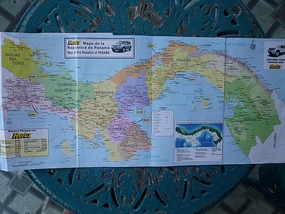
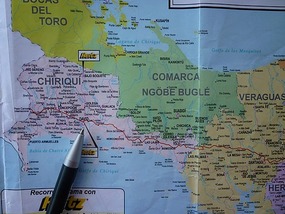
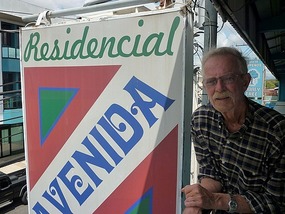
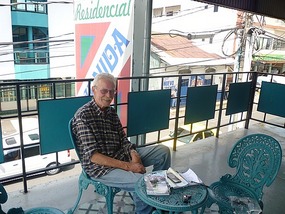
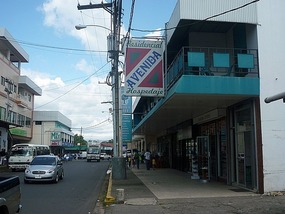
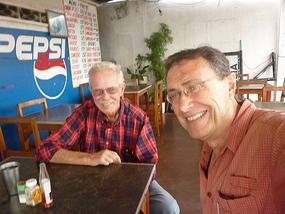
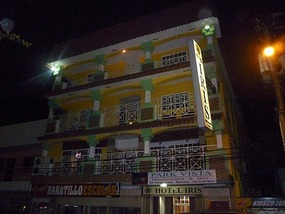
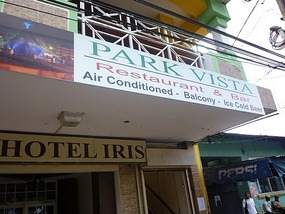
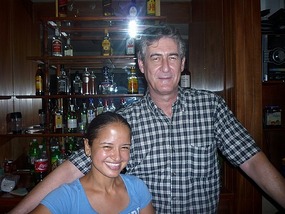
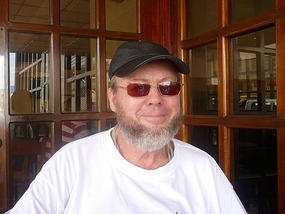
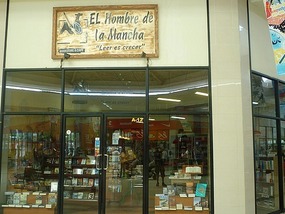
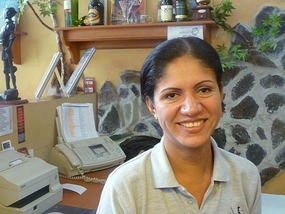
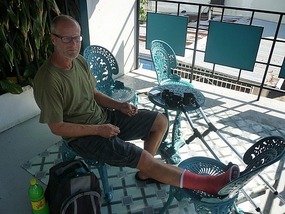
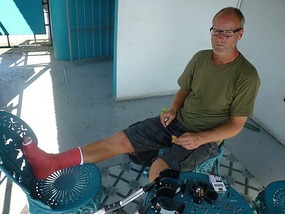
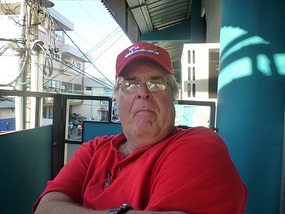




2025-05-22